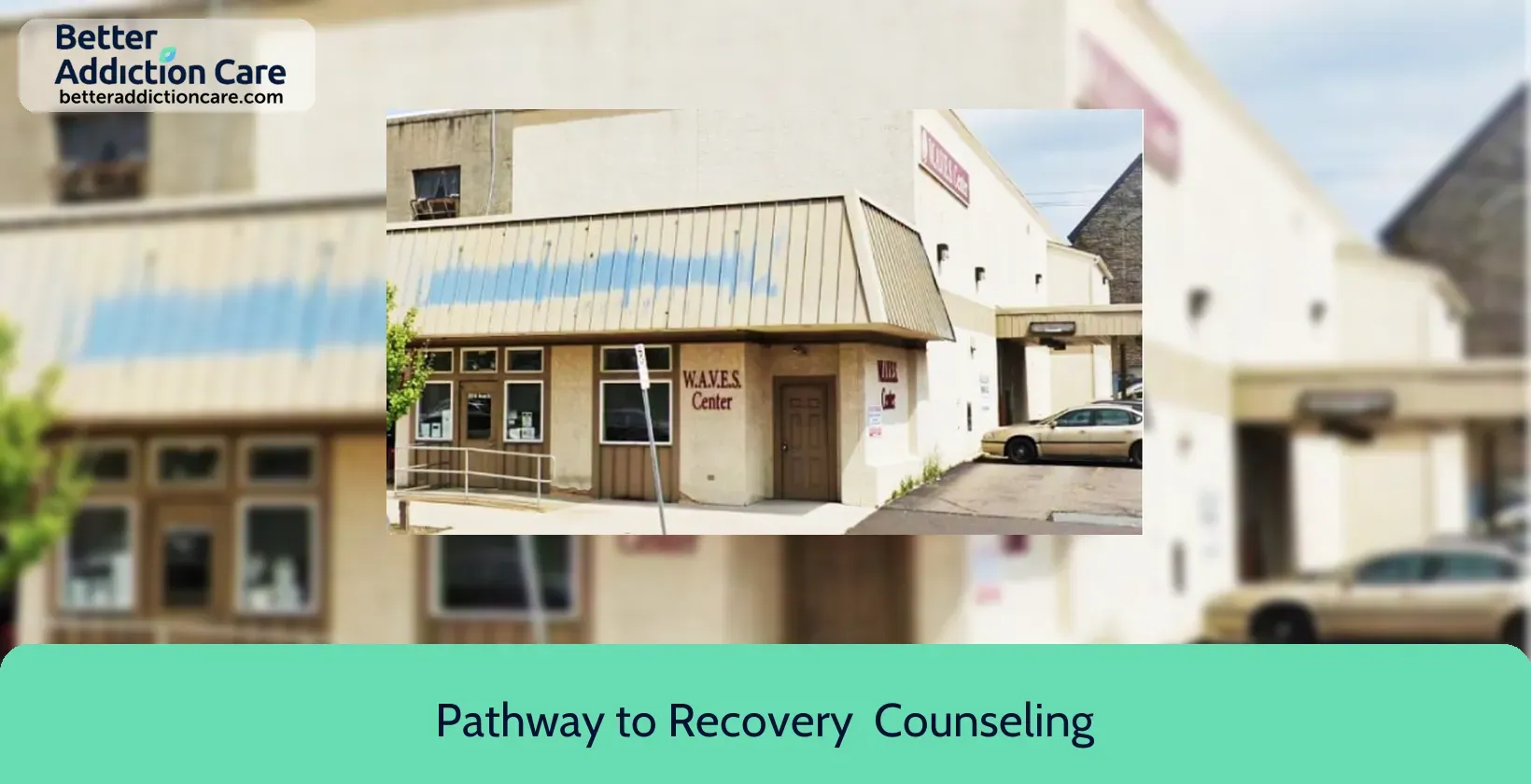Pathway to Recovery - Counseling and Educational Services
Overview
A non-profit organization called Pathway to Recovery is based in Hazleton, Pennsylvania, and it offers comprehensive outpatient therapy to those who are struggling with co-occurring disorders, addiction, and mental health difficulties. Pathway to Recovery was founded with the goal of providing essential assistance to those struggling with chemical dependence and assisting them in taking back control of their life. The organization's goal is based on its dedication to community well-being, placing a high value on easily accessible, compassionate treatment.
Established on July 1, 1977, under the original name Serento Gardens, Pathway to Recovery has helped hundreds of people overcome their battles with drug abuse. Having been one of the state's first drug rehab and education facilities for many years, the organization holds a license from the Pennsylvania Department of Health and is a proud member of the Greater Hazleton Chamber of Commerce, United Way of the Greater Hazleton Area, and the Association of Recovery Schools. The name was changed in 2013 to more accurately represent the organization's expanded goals and purpose to assist individuals in recovery.
A range of services are offered by Pathway to Recovery in order to meet the various requirements of addicts and their families. These include instructional initiatives that the Prevention Department offers to community organizations and schools, support groups designed specifically for those in recovery, and a DUI program that prioritizes safety and rehabilitation. To add to its all-encompassing approach to treatment and rehabilitation, the organization also provides free nicotine replacement therapy, employee help programs, and consulting services.
The Alcoholism Counseling Center of the Greater Hazleton Area and The Halfway Home of the Greater Hazleton Area, both founded in 1971, merged to establish the organization, which has its roots in their past. This partnership created the groundwork for Pathway to Recovery to grow into one of the area's premier providers of drug misuse treatment, prevention education, and continuous recovery support.
Pathway to Recovery is licensed by the state of Pennsylvania and is listed by the Substance Abuse and Mental Health Services Administration (SAMHSA). These accreditations serve as a testament to the organization's dedication to upholding the best standards of care and making sure that patients get the support they need while they work toward recovery.
Pathway to Recovery - Counseling and Educational Services at a Glance
Payment Options
- Cash or self-payment
- Medicaid
- Private health insurance
- Federal, or any government funding for substance use treatment programs
- Sliding fee scale (fee is based on income and other factors)
Assessments
- Screening for tobacco use
- Comprehensive mental health assessment
- Comprehensive substance use assessment
- Interim services for clients
- Outreach to persons in the community
Age Groups
- Adolescents
- Adults
- Young adults
Ancillary Services
- Domestic violence services, including family or partner
- Mental health services
- Social skills development
Highlights About Pathway to Recovery - Counseling and Educational Services
7.43/10
With an overall rating of 7.43/10, this facility has following balanced range of services. Alcohol Rehabilitation: 8.00/10, Drug Rehab and Detox: 7.23/10, Insurance and Payments: 6.67/10, Treatment Options: 7.82/10.-
Alcohol Rehabilitation 8.00
-
Treatment Options 7.82
-
Drug Rehab and Detox 7.23
-
Insurance and Payments 6.67
Accreditations
State mental health department:
State mental health department accreditation refers to the process of evaluating and certifying the quality and standards of a state's mental health department, ensuring that it provides high-quality services and meets specific criteria for mental health care. The accreditation process is performed by a third-party organization and helps to improve the overall care and treatment of individuals with mental health conditions.
State department of health:

State Licenses, issued by government agencies, authorize rehabilitation organizations to legally operate within designated geographical areas. The specific licenses required for operation are typically determined by both the nature of the rehabilitation program provided by the facility and its physical location.
Treatment At Pathway to Recovery - Counseling and Educational Services
Treatment Conditions
- Alcoholism
- Mental health treatment
- Substance use treatment
- Co-occurring Disorders
- Opioid Treatement
Care Levels
- Outpatient
- Outpatient methadone/buprenorphine or naltrexone treatment
- Intensive outpatient treatment
- Regular outpatient treatment
- Aftercare
Treatment Modalities
- Cognitive behavioral therapy
- Substance use disorder counseling
- Trauma-related counseling
- Smoking/vaping/tobacco cessation counseling
- Treatment for gambling disorder
Ancillary Services
Languages
- Spanish
Additional Services
- Pharmacotherapies administered during treatment
- Discharge Planning
- Breathalyzer or blood alcohol testing
Special Programs
- Clients with co-occurring mental and substance use disorders
- Clients who have experienced trauma
- Clients who have experienced intimate partner violence, domestic violence
Contact Information
Read our Most Recent Article About Drug Addiction
DISCLAIMER: The facility name, logo and brand are the property and registered trademarks of Pathway to Recovery - Counseling and Educational Services, and are being used for identification and informational purposes only. Use of these names, logos and brands shall not imply endorsement. BetterAddictionCare.com is not affiliated with or sponsored by Pathway to Recovery - Counseling and Educational Services.









